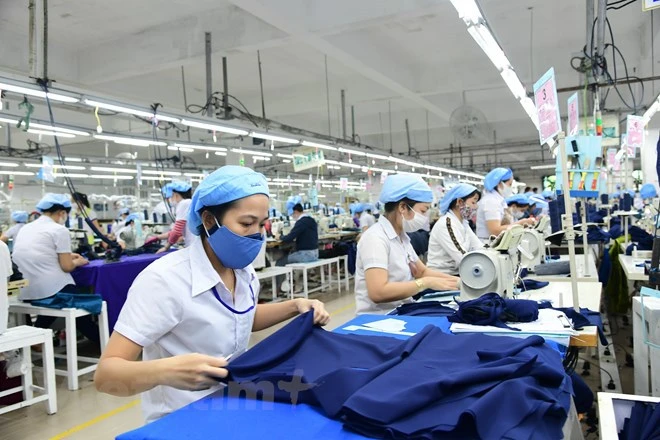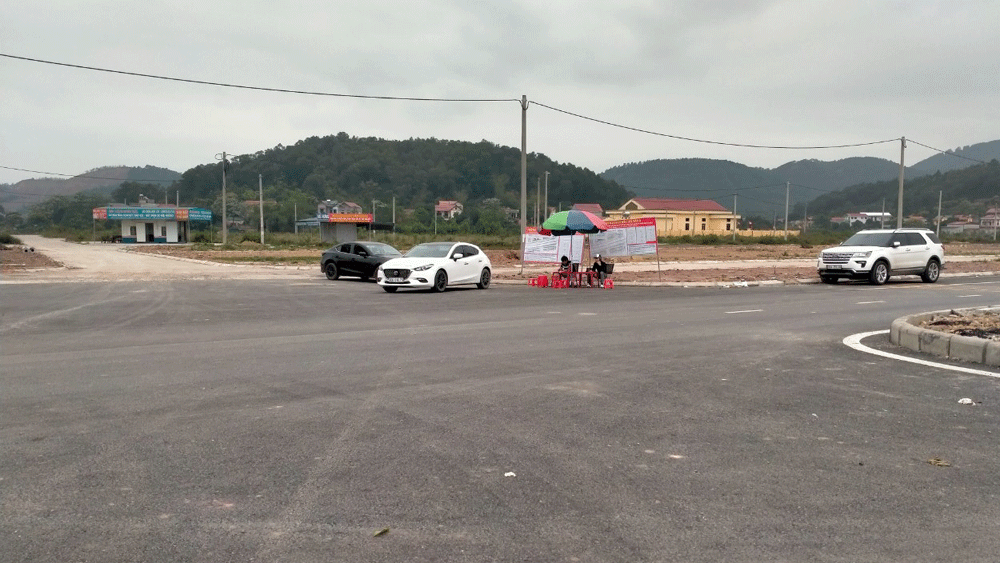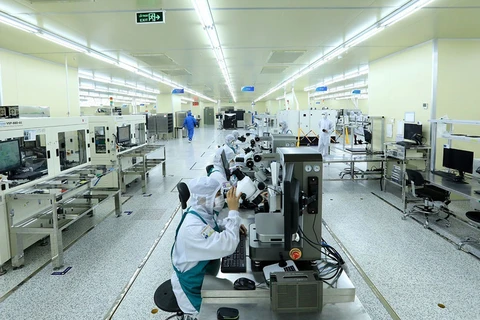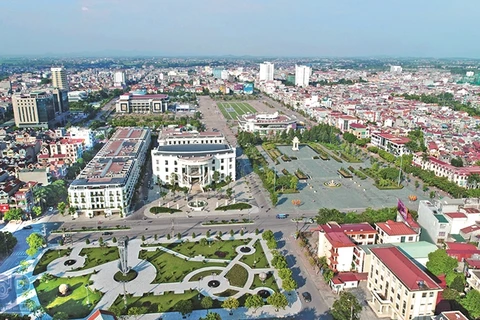
 The banking sector of the northern province of Bac Giang continues to roll out measures to speed up loan disbursement and improve credit growth for local socio-economic development. (Photo: VNA)
The banking sector of the northern province of Bac Giang continues to roll out measures to speed up loan disbursement and improve credit growth for local socio-economic development. (Photo: VNA) Bac Giang (VNA) – The banking sector of the northern province of Bac Giang will roll out measures to speed up loan disbursement and improve credit growth for local socio-economic development, according to the provincial branch of the State Bank of Vietnam (SBV).
It will effectively fulfill its advisory role to the provincial Party Committee, the People's Committee and the SBV in terms of monetary and banking activities in the locality, as well as ask local credit institutions to comply with currency and banking regulations.
Furthermore, it will also direct commercial banks to continue with concerted and flexible solutions for capital mobilisation and lending activities, thus ensuring an adequate supply of capital for production, trade, and rural agriculture.
Together with the continued review of preferential loans under the Government’s Decree 31, debt restructuring under the SBV’s Circular 02 and social housing loans under the Government’s Resolution 33, local banks will effectively carry out programmes to connect businesses and banks together, and ease difficulties for enterprises in need of loans.
 After the provincial People's Committee announced a list of 12 low-income social housing projects for workers, the SBV branch issued a directive to commercial banks to facilitate access for lending. (Photo: vietnamnet.vn)
After the provincial People's Committee announced a list of 12 low-income social housing projects for workers, the SBV branch issued a directive to commercial banks to facilitate access for lending. (Photo: vietnamnet.vn) In the first half of this year, the branch asked local credit institutions to focus on production and trade, priority sectors, and socio-economic drivers. They must closely control high-risk areas and make it easier for businesses and individuals to access credit, restructure debt repayment terms and maintain debt categories to support clients in difficulties, and launch programmes on social and worker housing, renovation and reconstruction of old apartment buildings under the Government’s Resolution 33.
After the SBV adjusted its regulatory interest rates four times in a row, local banks reduced interest rates by 0.5%-2%, depending on the loan packages and terms to support customers.
As of June 30, local banks raised over 96.8 trillion VND (4 billion USD) in deposits, up 13.16% from December 31, 2022. The outstanding loans was more than 82.9 trillion VND, up 2.71% from December 31. The credit quality was maintained, with non-performing loans reaching 780 billion VND, or 0.94% of the total loans.
The outstanding preferential loans topped 403 billion VND as of December 31, 2022; 409 billion VND as of March 31, 2023; and 32 billion VND as of May 31.
After the provincial People's Committee announced a list of 12 low-income social housing projects for workers, the SBV branch issued a directive to commercial banks to facilitate access for lending.
The branch also held a conference to connect banks and businesses together, during which it collected suggestions and answered questions raised by enterprises and cooperatives. It also worked with the provincial Business Association to deal with their proposals.
However, difficulties remain ahead, such as the low credit growth due to lower demand and hard capital absorption among businesses, lack of transparency in financial reporting systems, and lack of feasible business plans.
The disbursement of preferential loans remains limited as clients fail to meet criteria. Even when clients meet the criteria for interest rate support, they are still reluctant due to concerns over verification, inspection, and post-loan monitoring procedures./.























